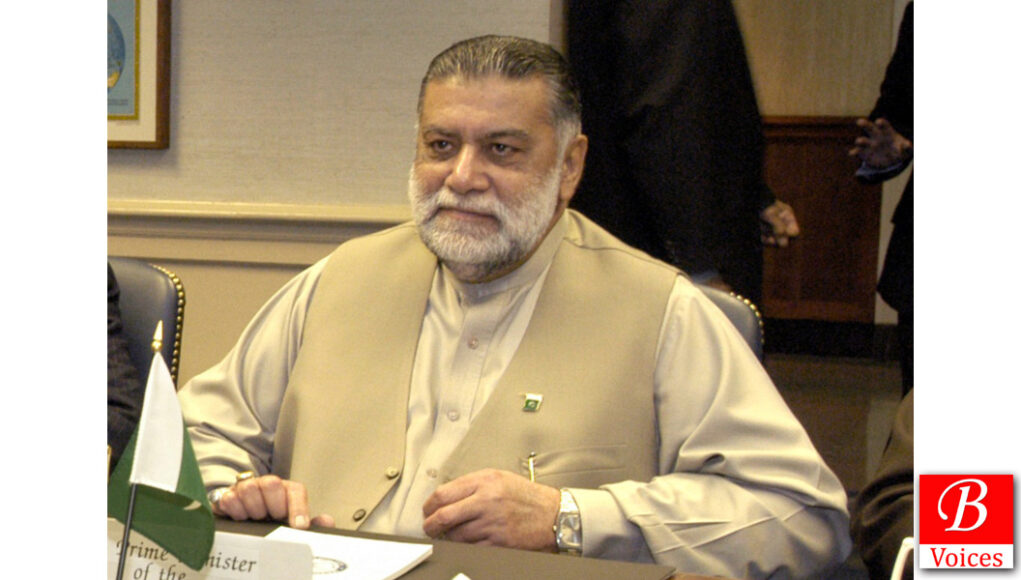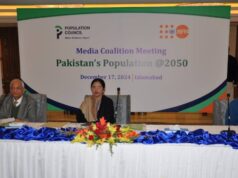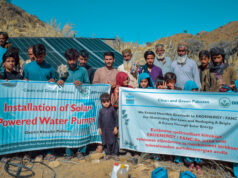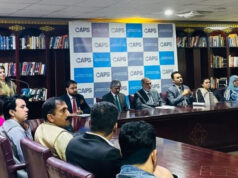Adnan Aamir
The year 2020 will always be remembered as a year of global grief due to the COVID-19 pandemic. This year snatched two heavyweights from the political landscape of Balochistan. In August, Hasil Bizenjo passed away and on December 2, former prime minister Zafarullah Jamali breathed his last in a hospital in the garrison city of Rawalpindi.
Zafarullah Jamali was known as a soft-spoken politician who never got personal with his political opponents. He was also not fond of VIP protocols and preferred to live a simple life even when he was the prime minister. With his loss, Balochistan lost a veteran politician who could speak for the province in the echelons of power in Islamabad.
Fondly called Mir Jabal Khan in his family, Zafarullah Jamali was born in Rojhan Jamali town of Balochistan in 1944. He was the nephew of legendary politician Mir Jaffar Khan Jamali and received education in elite institutes such as Lawrence College Murree, Aitchison College, and Government College Lahore. He started his political career while serving as guard and polling agent for Fatima Jinnah in the 1965 presidential elections. This was the first and last experience of Zafarullah Jamali challenging the establishment.
In the last 1960s, Jamali joined the newly formed Pakistan People’s Party. This was the beginning of his active political career in which he always sided with the political parties who were in power. He lost the 1970 elections but won a seat in the Balochistan Assembly in the 1977 elections and became a minister for the next few months. In July 1977, General Ziaul Haq imposed martial law and Jamali was among the first lot of politicians to leave Bhutto and support the military dictator.
In the cabinet of General Zia, he enjoyed the benefits of power as minister of state for local bodies. He was elected to the National Assembly of Pakistan in the party-less polls of 1985. After the elections, he was a contender for the prime minister of Pakistan but lost the position to Muhammad Khan Junejo. He was made the federal minister for water and power instead. In 1987, he carved out the new district of Jaffarabad in Balochistan named after his late uncle Jaffar Khan Jamali. When Ziaul Haq dismissed Junejo’s government, Jamali was made the caretaker chief minister of Balochistan.
Later, General Zia died in a plane crash in August 1988. Right after the death of the dictator, in a display of pure opportunism, Zafarullah Jamali joined the PPP again. He continued as chief minister of Balochistan from the platform of PPP before the assembly was dissolved in December 1988. His partnership with PPP did not last long and he once again jumped ship to PML-N in 1990. In the next decade, he remained aligned with Nawaz Sharif. He got the returns by being elected to the Senate in 1994 and 1997 and also became the caretaker chief minister of Balochistan in 1996.
Despite being in government since the 1970s, Jaffarabad, the home district of Zafarullah Jamali, remains poorly developed. With a population of over half a million, Jaffarabad is among the most backward districts in Balochistan
In October 1999, the government of Jamali’s political ally Nawaz Sharif was toppled by General Musharraf. Jamali repeated with Nawaz Sharif what he did with Bhutto 22 years ago. He quickly left the PML-N and joined the bandwagon of Musharraf’s supporters. After the 2002 elections, the PML-Q was having problems gaining a simple majority. Zafarullah Jamali was chosen as a compromise candidate. So, finally, after a wait of 17 years, Zafarullah Jamali became the prime minister of Pakistan.
Jamali got the distinction of becoming the first prime minister from Balochistan. This was his unique selling point, which allowed him to become the prime minister in a surprising way. Jamali remained in the top office of the country for less than two months. There is not much to his credit as the premier. He did nothing for the impoverished province of Balochistan. In short, the people of Balochistan did not benefit in any way from his premiership. However, he was lucky in the way that he quit the office in 2004 and the separatist insurgency in Balochistan begin in 2005-06. Had he continued as PM, he would have been blamed along with Musharraf for the assassination of Nawab Akbar Bugti in 2006.
Zafarullah Jamali did not contest the 2008 elections. He was again elected to the National Assembly in the 2013 elections, this time as an independent. After the elections when it was clear that the PML-N would form a government, Jamali did not hesitate to join the PML-N yet again. This time he did not get many benefits from the government because apparently, Nawaz Sharif had not forgotten the old betrayals. However, Jamali remained with the PML-N till 2018. Soon, before the 2018 elections, Jamali again pulled a surprise from his hat. He joined the PTI when it was clear that Imran Khan would become the next prime minister. He did not contest in the 2018 elections but his son and another nominee were elected to the Balochistan Assembly and National Assembly on a PTI ticket respectively.
Despite being in government since the 1970s, Jaffarabad, the home district of Zafarullah Jamali, remains poorly developed. With a population of over half a million, Jaffarabad is among the most backward districts in Balochistan. Rojhan Jamali, the birthplace of Zafaraullah, is located 11 kilometers from the headquarters of Jaffarabad district. Even this 11-km road is badly damaged and veteran Jamali never bothered about doing anything to improve it. Jamali as PM and twice as CM of Balochistan and the federal minister did not do any good for the residents of Jaffarabad, let alone the people of Balochistan.
Given the local tradition of not saying bad words about the dead, Jamali was eulogized across Balochistan. However, he has left a political legacy of switching parties frequently for power and not doing anything for his people. Arguably, he has changed more parties than many other leading politicians in Pakistan. This legacy of Zafarullah Jamali will ultimately decide his place in history.
Share your comments!








